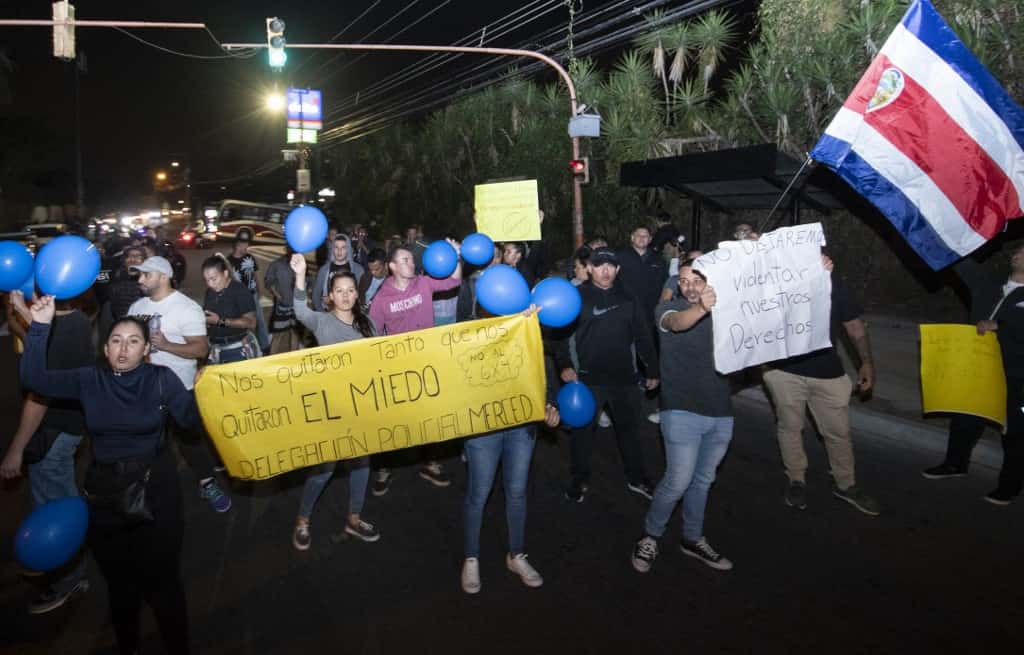The recent protests by Costa Rican Police officers have brought to light a proposed reduction of days off in the police force, which was part of a special operation against organized crime.
The plan was aimed at responding to the increase in violence in the country, which made 2022 the year with the most violent deaths since records began. However, after the protests, President Rodrigo Chaves assured that the reduction of rest days “is in the freezer” and will not go into effect.
The plan involved incorporating 700 new agents to the police force and changing the schedules of the current uniformed officers. Previously, officers enjoyed 6 days off for 6 days of work, but the new plan would require them to work 6 days and rest 4.
This change was met with strong opposition from off-duty agents who blocked roads and access to facilities, causing momentary cuts in the main highways of the country and in arteries of the capital. Access to the airport of San José was also interrupted.
President Chaves listened to the concerns of the police officers and assured them that the reduction of rest days would not go into effect for the time being. He emphasized that the government would not force the officers to accept the change. The Minister of Public Security, Jorge Torres, also acknowledged the discontent of the police force and called for negotiations to find a solution.
It is important to note that the proposed reduction of days off was part of a larger effort to combat organized crime and the escalation of homicides in several parts of the country.
The Judicial Investigation Agency (OIJ) reported 856 homicides in Costa Rica in 2022, a record number. The rate of violent deaths per 100,000 inhabitants rose to 12.6, compared to 11.4 in 2021. The majority of these deaths (63%) were the result of settling of scores between criminals.
The government’s plan to address the rise in violence is crucial, and it is understandable that they are looking at ways to strengthen law enforcement.
However, it is also important to consider the well-being of the police force, who work tirelessly to keep their communities safe. The reduction of rest days could have a negative impact on their physical and mental health, which could ultimately affect their ability to perform their duties effectively.
It is encouraging to see that President Chaves and Minister Torres are open to negotiations and are seeking a solution to the discontent of the police force.
It is important to strike a balance between addressing the rise in violence and taking care of the well-being of law enforcement officers. Hopefully, a mutually beneficial solution can be found that will not only strengthen law enforcement but also support the physical and mental health of the police force.
The recent protests by Costa Rican police officers have highlighted the proposed reduction of days off in the police force.
While the reduction was part of a larger effort to combat organized crime and the rise in violence, President Chaves assured the officers that it will not go into effect for the time being. Negotiations are ongoing, and it is important to find a solution that balances the need for strong law enforcement with the well-being of the police force. By doing so, Costa Rica can move towards a safer and healthier future.






